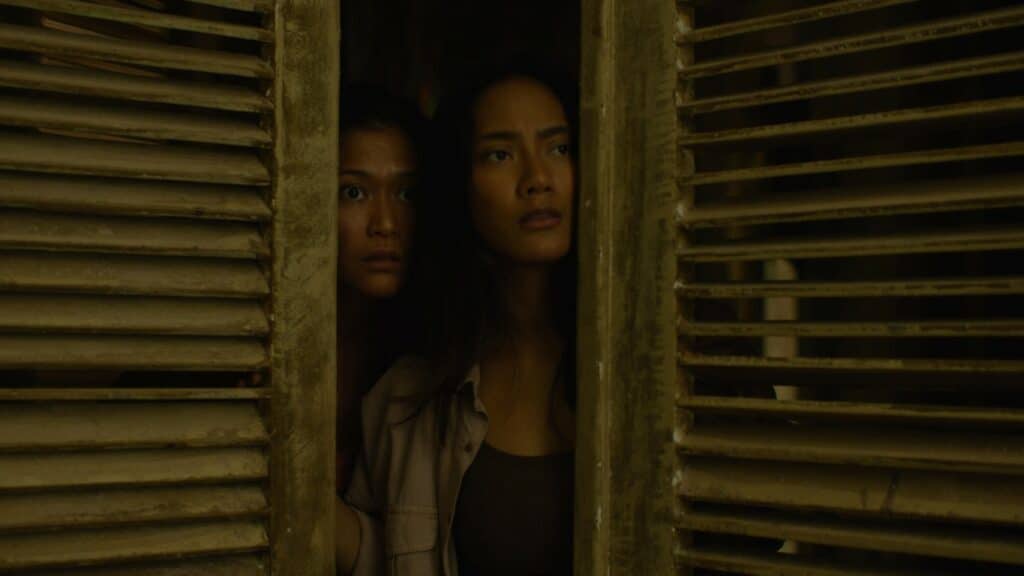Read also:
How to Watch FX Live Without CableHow To Watch AMC Without CableHow to Watch ABC Without CableHow to Watch Paramount Network Without CableIndonesian horror maestro Joko Anwar returns for another piece of chilling, atmospheric folklore.
While plenty of Asian horror has made its way into the relative mainstream in the U.S., Indonesian horror is still dipping its bloody toes into Western audiences’ radars. One of the most successful, Joko Anwar‘s Satan’s Slaves (which we adored when we reviewed it a couple of Fantasia Fests ago), was a chilling, atmospheric tale that mixed Indonesian folklore with a haunting tale of generational angst. In that respect, Anwar’s followup Impetigore (premiering this week on Shudder) feels like familiar ground — it, too, has curses, drownings, and spooky cemeteries. But it also feels like an already-assured director finding even stronger footing in the genre, and handily showing up Western directors reviving a similar strain of folk horror.
Satan’s Slaves star Tara Basro returns to work with Anwar as Maya, a young woman living and working as toll booth operators in Jakarta. The opening minutes thrust us into Anwar’s beguiling brand of off-kilter tension, as Maya and her best friend Dini (Marissa Anita) are attacked by a mysterious regular who pulls his car over and attacks her with a machete before being killed himself.
Some time later, Maya learns that she was actually born in a remote village out in the woods, and may be entitled to a large inheritance there — including the largest house in the village. She saunters off into the countryside, Dini in tow, to visit the village and learn about where she came from.

Anyone familiar with The Wicker Man or Midsommar or any other strain of folk horror can quickly guess the general order of things from there: the city-dwelling visitors find themselves tensely navigating a closed-off community beset with strange ways and a mysterious curse that Maya may or may not be involved in. An early visit to a graveyard (named after Maya’s father) implies that no children have been successfully born in the village for years — the result of a curse that may only be lifted, it’s said, when the bloodline of the person who set the curse is ended. There are creepy village elders (like Christine Hakim’s unsettling village elder, and her son played with calculating menace by Ario Bayu), women hanging upside down, and plenty of spilled blood and ghostly girls to go around.
But Anwar’s approach is subtle and remarkable, effortlessly balancing the odd moment of bloodshed with buckets of foggy atmosphere. Ical Tanjung’s camera is steady and confident, strategically employing whip pans to follow Maya’s frantic glances or tilting upside down to make us as dizzy as someone hanging upside down from a rope. At first glance, Impetigore feels like your bog-standard horror movie, draped in browns and muds to keep us feeling grimy, but Anwar makes judicious use of his woodland atmosphere to keep things visually interesting.
And like with most good folk horror, Impetigore takes horrific inspiration from the folklore of its home culture. A prominent stylistic and narrative device involves the use of wayang kulit, a type of traditional Indonesian shadow puppetry involving 2-D puppets fashioned from leather. (Given the problems facing the village, one can quickly intuit the grisly material Impetigore‘s puppets are made of.) Anwar employs this stylistic device in myriad ways, whether for expository plays about the plight of the village and the curse that plagues it, or as a backdrop for some creative blood-letting. It’s inventive, novel stuff, and a welcome bit of presentationalism in a film otherwise preoccupied with the in-your-face horrors of murderous villagers (slit throats, drowned babies and all).
[L]ike with most good folk horror, Impetigore takes horrific inspiration from the folklore of its home culture.
At the same time, Anwar takes great care to not turn Impetigore into a city vs. country Texas Chainsaw Massacre exploitation-fest; like Satan’s Slaves before it, Anwar’s latest is a tragic supernatural drama about people caught on the raw end of a deal someone else made for them. The villagers are frightening, and in the thrall of murderous forces (When Maya asks one sympathetic villager why they follow Biyu’s character, her response is: “Who else do we have to look up to here?”), but they’re driven by desperation to lift a curse that has claimed their children for years. Obviously, we root for our heroine to lift the curse without having to lose her life, but the savagery of the townsfolk is borne of genuine, decades-long pain they’re willing to stamp out by any means necessary.
More than the raw, bloody scares and the committed performances from Basro et al., it’s Impetigore‘s sense of folkloric melancholy that cements Anwar as one of the most exciting new voices in Asian horror. Its atmosphere is as thick as the fog that coats Maya’s childhood village, with an eye to synthesizing traditional horror tropes through the lens of Indonesian history and folklore.
Impetigore brings you back home again on Shudder July 23rd.